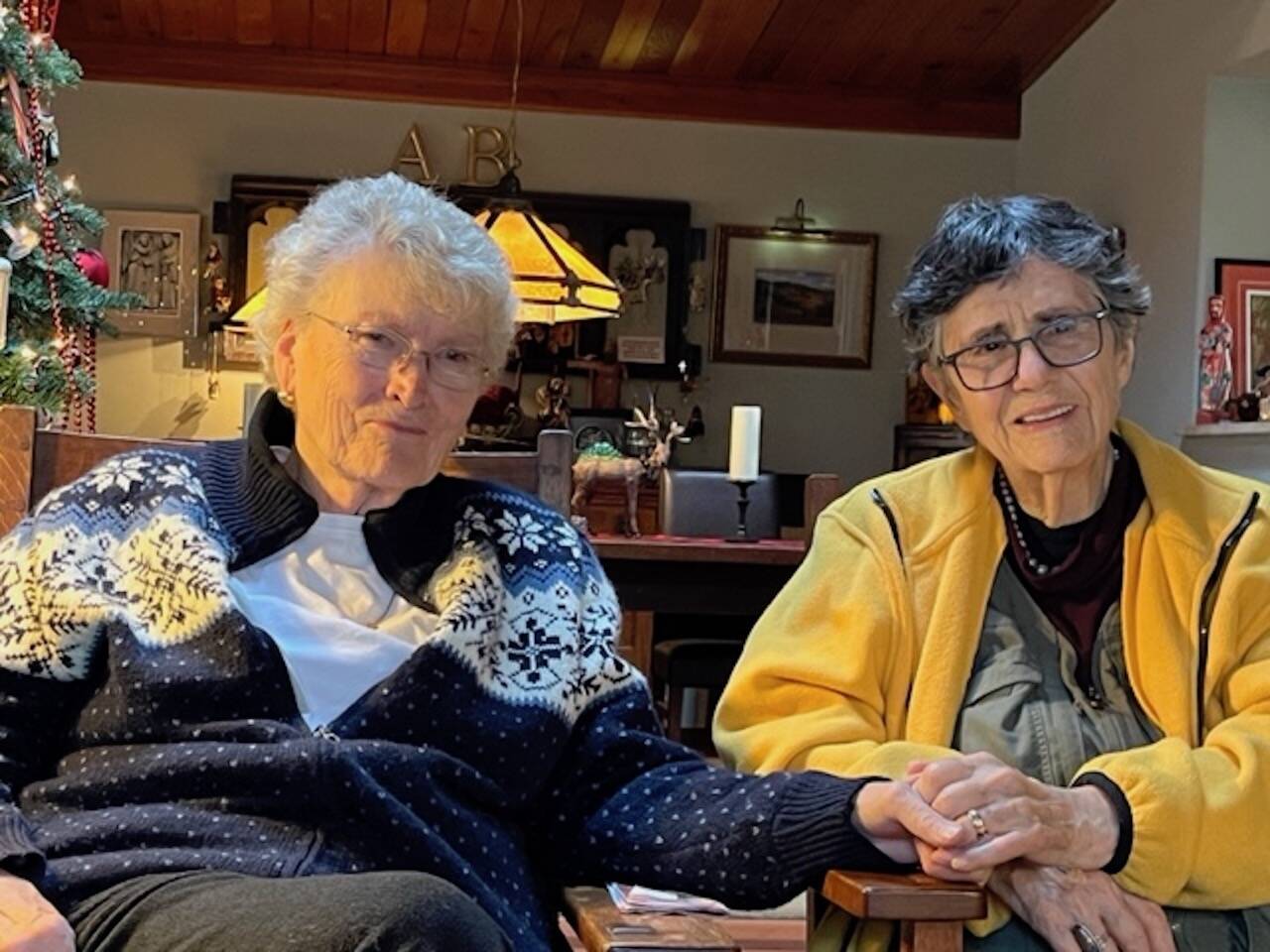Grethe Cammermeyer is no stranger to controversy and overcoming issues of unfairness and injustice during her long career of service. In 1993, after being discharged from the Army for honestly admitting that she was a lesbian, Grethe sued the military and won the right to be reinstated as a lieutenant colonel in Washington’s Army Nurse Corps. Her victory and the national celebrity it gave her — including a book and movie — made her a public figure in the effort to repeal the military’s repressive “don’t ask, don’t tell” policy. When that finally happened in 2010, gay and lesbian members of the armed forces could at last serve openly without reprisal.
But then came Dec. 9, 2012, the day same-sex marriage became legal in Washington after voters had approved it in November. Grethe married her long-time partner Diane Divelbess at their home in Langley. They also invited nine other long-time lesbian and gay couples to get married there that day too, including myself and Terry, my partner since 1975. Nancy Conard, then mayor of Coupeville, officiated at all ten weddings; those of us who were there jokingly called it the “Moonie wedding.”
Grethe and Diane moved to our Rock after Grethe retired from the Army in 1967. She quickly became involved in service organizations and politics, and for the last 13 years has served as a WhidbeyHealth hospital district commissioner.
“Before 2012, so much of my focus had been on gays in the military and I didn’t give marriage much of a thought,” she said. “I just never thought (legal marriage) would be an option, and since I had a very strong relationship with Diane since 1988, I didn’t think we needed a government stamp of approval to validate it.”
In fact, same-sex marriage had been defeated by voters and politicians for years pretty much everywhere. Then in January 2012, the Washington Legislature narrowly approved a bill to permit it here and then-Gov. Christine Gregoire signed it. Immediately, however, strong opponents gathered enough signatures to force a public vote on it in November. Many thought it would go down to defeat as it had elsewhere, but it didn’t. Nearly 54% of Washington voters approved it on Nov. 6, one of three states to be the first to do so. (The other two were Maine and Maryland.)
Grethe recalls that before 2012, gay and lesbian couples could file paperwork to be domestic partners in a “civil union.” But that came with none of the benefits of legal marriage, especially at the federal level (joint filing of taxes, Social Security survivor rights and so on).
“There are probably 1,000 different things you get with legal marriage that you didn’t get with civil union,” she said. “In the military, for instance, once gays could serve openly they could become a couple with another person in the military but they got none of the benefits provided to legally married military couples.”
But even though she wasn’t expecting to feel any different once they were married, Grethe and Diane were very eager to tie the knot in order to be part of history. On Dec. 6, 2012, the first day same-sex couples could get marriage licenses under the newly approved law, Grethe and Diane got up very early and brought lawn chairs to sit outside the Island County Auditor’s office door in Coupeville until it opened at 8 a.m. They were determined to be the first in Island County to get their marriage license, and they were — ahead of several dozen other couples who lined up that day (including Terry and me).
Then, after the wedding service on Dec. 9 (the state still requires a three-day waiting period after getting the license before any couple can get married), Grethe started to feel something.
“We weren’t really expecting to feel any difference when we got legally married,” she said. “And yet once we were married ‘in the eyes of the law,’ something happened that we couldn’t quite articulate. I don’t know if it was a sense of relief or exuberance or legitimacy, and it came with a feeling of peace, a sense of calm. We had made the final commitment to add to the personal and spiritual commitments we already had.”
And in the decade since, that feeling has only deepened. Especially as same-sex marriage became an unremarkable “no big deal” for most people. Washington state now has more than 21,000 legally married gay and lesbian couples.
Adding to that deepened sense of legitimacy and peace, on Tuesday, Dec. 13 — just three days after the 10th anniversary of legal same-sex marriage in Washington — President Joe Biden signed the new, bipartisan Respect for Marriage Act, which enshrines and protects same-sex marriage in federal law across all states.
“The legitimacy of it is what becomes more important as couples like us get near the end of life,” Grethe said. She is 80 and Diane is 87. “We long ago committed to be with each forever, but the legal protection of marriage assures us that nothing can ever interfere with that.”
Harry Anderson is a retired journalist who worked for the Los Angeles Times and lives with his husband on Central Whidbey.


